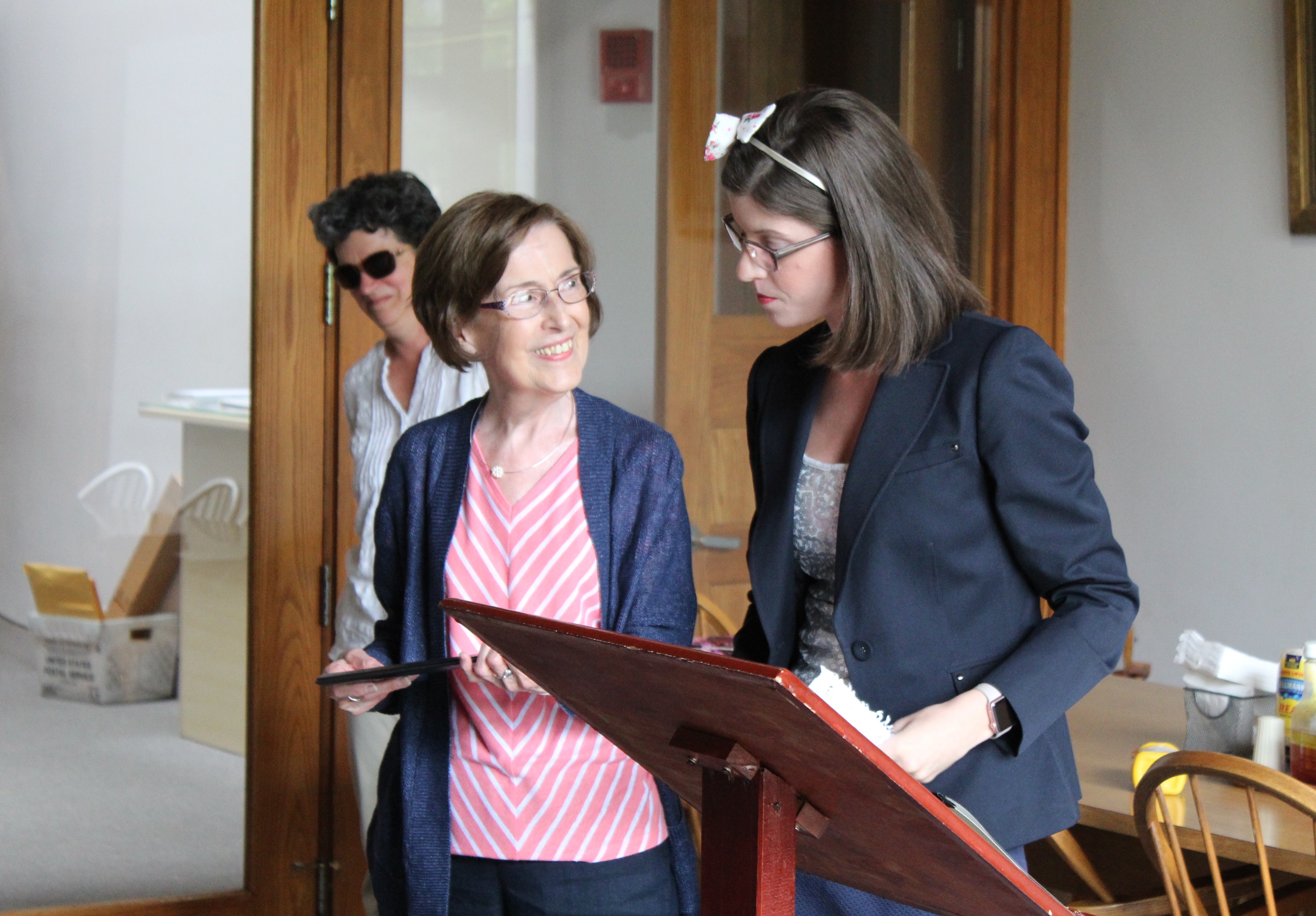AARP Hearing Center

Arlene Anderson, 81, was born nearsighted and always wore glasses. Over time her sight deteriorated, and she gave up driving 20 years ago.
Now legally blind, Anderson faces many challenges in accomplishing routine tasks such as preparing meals and getting dressed. In 2018, she enrolled in a class on essential skills at the Carroll Center for the Blind, in Newton, to help her adapt.
The two-week course covered an array of activities: paying bills, traveling safely, organizing medications. Anderson picked up tips for recognizing measuring cups and spoons, and learned about smartphone apps that can help her read documents or describe the color of an article of clothing.
“It gave me back my confidence,” said Anderson, a widow who lives alone in Concord. “When you lose your vision, you lose your independence—unless you take the necessary steps.”
The Carroll Center, established in 1936, provides assessment, rehabilitation services and training to people who are blind or have low vision. Thanks to $250,000 in funds from the Massachusetts Commission for the Blind, the center is expanding training opportunities for older residents and others who need to learn skills to stay independent.
“When you lose your vision, it is very much a loss within yourself,” said Dina Rosenbaum, the center’s chief program officer. “You lose independence, your role within your family, your ability to socialize. The Carroll Center helps you get that back.”
Apps to the rescue
With the state funding, the center is offering expanded classes in essential skills, safe travel and mobility, and tech training.
A course on Apple products covers accessibility applications like Zoom, which offers screen magnification, and VoiceOver, which reads aloud on-screen text.
“There are so many apps for the iPhone. That’s been a great help,” said Anderson, who learned to use a Microsoft app, Seeing AI, that describes people, text or objects for the vision-impaired.
Bob McGillivray, director of low-vision services at the center, helps clients determine which devices will best fit their needs. He also regularly visits senior centers and support groups to talk about living with vision loss and the tools that are available.
According to the American Foundation for the Blind, more than 128,000 state residents report having “vision difficulty,” ranging from total blindness to serious difficulty seeing.
Legally blind individuals who register with the Massachusetts Commission for the Blind are eligible for a range of benefits and services, including free access to the Carroll Center’s programs, said Rosenbaum. Others can attend the classes for a fee.
“Thousands of our members who are dealing with vision loss could potentially benefit from these programs,” said Mike Festa, AARP Massachusetts state director.
The classes not only taught Anderson important skills but also connected her to people who share a common bond.
“Losing your sight can be isolating,” she said. “Being around people who are experiencing the same thing as you are is a wonderful thing. You don’t feel different.”
To contact the Carroll Center (carroll.org), call 800-852-3131.
To reach the state Commission for the Blind (mass.gov/mcb), call 800-392-6450.
Jill Gambon is a writer living in West Newbury, Mass.
More on Loss of Vision































































